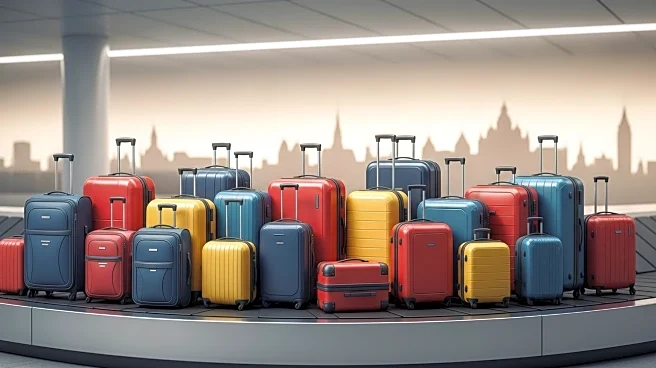What is the story about?
What's Happening?
Eurostat has released data highlighting significant disparities in holiday affordability across the European Union. According to the 2024 statistics, approximately 27% of EU citizens are unable to afford a one-week vacation. The data reveals stark contrasts between wealthier nations like Luxembourg and Sweden, where only 9% and 11.6% of citizens, respectively, report being unable to afford holidays, and southern and eastern European countries such as Romania and Greece, where 59% and 46% of the population, respectively, find vacations financially out of reach. These figures underscore the broader economic inequalities within the EU, with wealthier countries benefiting from stronger economies and social safety nets, while less affluent nations struggle with economic instability and lower incomes.
Why It's Important?
The holiday inequality highlighted by Eurostat is indicative of broader economic and social disparities within the EU. The ability to afford vacations is not just a matter of leisure but is linked to overall quality of life, mental health, and social cohesion. In wealthier nations, the economic benefits of tourism are more evenly distributed, allowing more citizens to participate in travel and leisure activities. Conversely, in countries like Romania and Greece, economic challenges and unemployment hinder the ability of citizens to afford holidays, exacerbating social divides. This inequality also impacts local economies, as increased domestic travel could stimulate economic growth in these regions.
What's Next?
Addressing holiday inequality requires tackling the root causes of economic disparity. Potential solutions include increasing minimum wages, enhancing social safety nets, and promoting affordable domestic tourism. Investments in tourism infrastructure and subsidies for local travelers could also help bridge the gap. Additionally, promoting off-season travel and budget-friendly destinations within the EU could provide more opportunities for lower-income individuals to travel, potentially boosting local economies and reducing social inequalities.
Beyond the Headlines
The issue of holiday inequality reflects deeper economic and social challenges within the EU. It highlights the need for policies that address income inequality and promote economic stability across all member states. By improving access to leisure and travel, the EU can work towards greater social cohesion and economic resilience, ensuring that all citizens can enjoy the benefits of tourism and leisure.

















